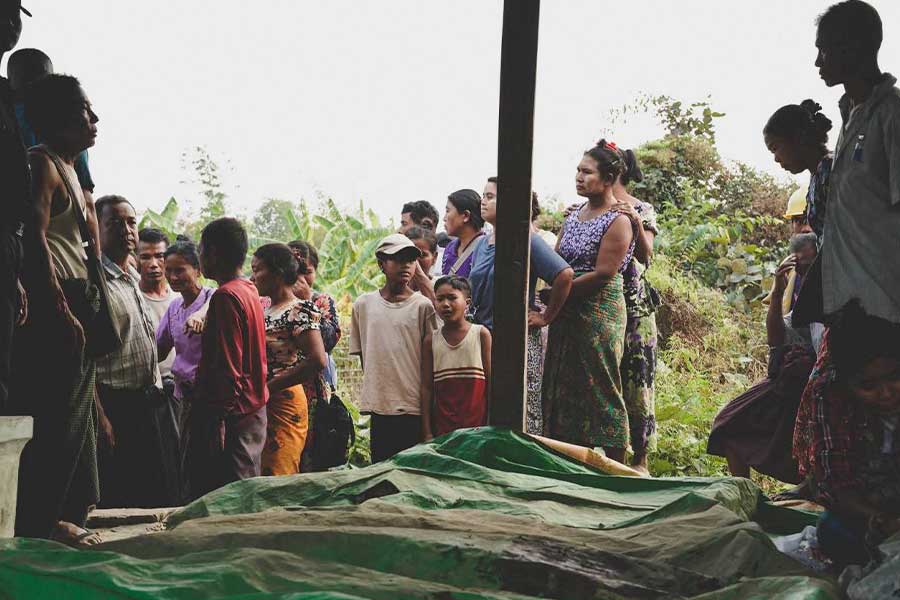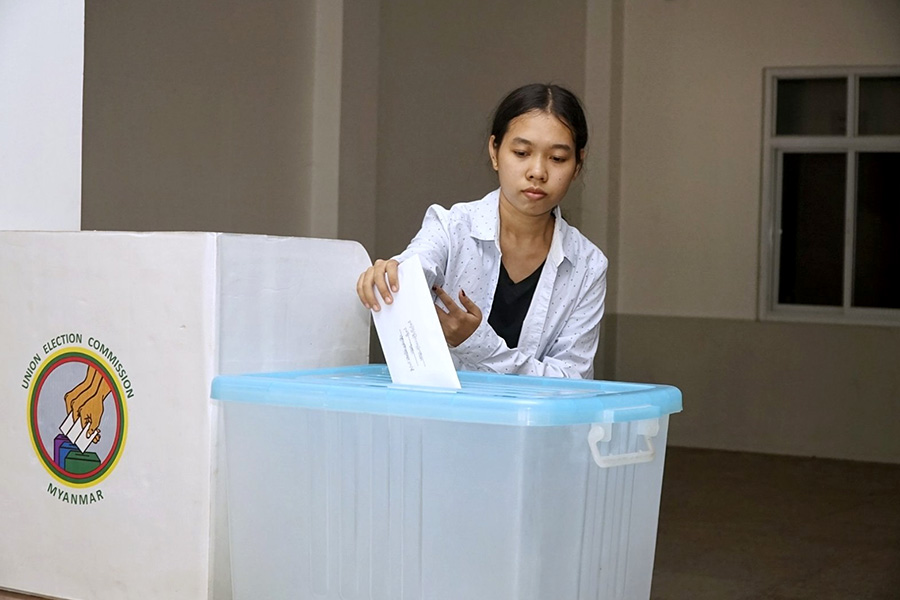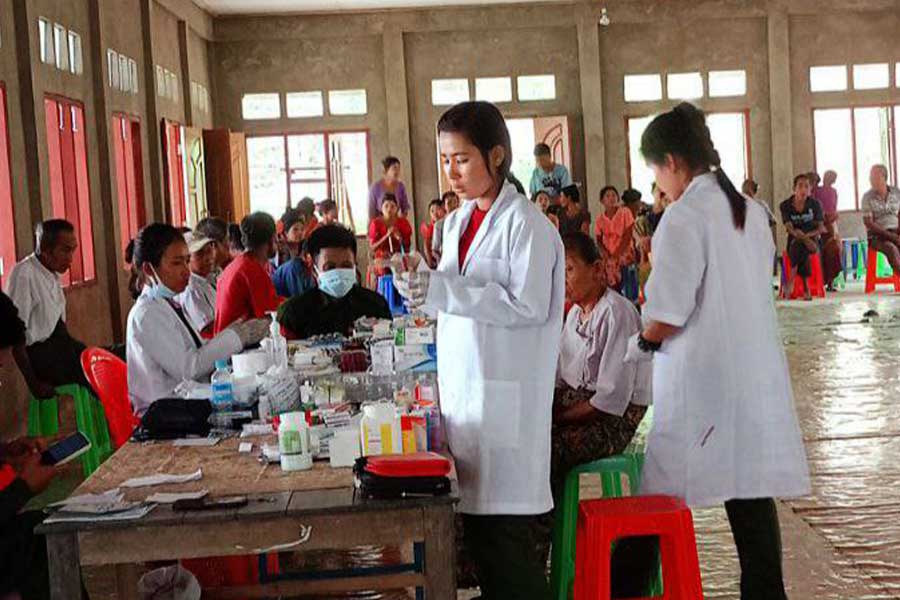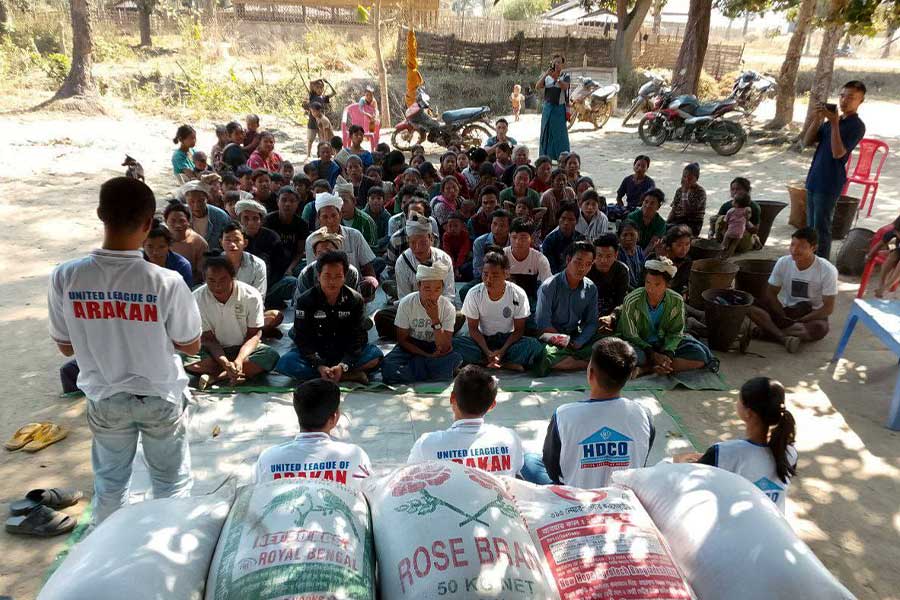- 15 mass casualty incidents from regime airstrikes reported in Arakan State since 2023
- Kyaukphyu IDPs forced to flee again amid junta airstrikes and artillery attacks
- New Diplomatic Movements Between Bangladesh’s New Government and the Arakan Public Administration
- Junta claims over 24 million ballots cast in 2025 poll, cites strong youth turnout
- ULA expands HIV prevention, healthcare services for sex workers in AA-held areas
Mother says suspect in murder case is innocent, as separate ULA and Sittwe police probes move forward
Family members of the suspect in a high-profile murder case in the Arakan State capital Sittwe have expressed concerns as they have not yet been allowed to see him nearly one month after he was detained.
10 Sep 2022

DMG Newsroom
10 September 2022, Sittwe
Family members of the suspect in a high-profile murder case in the Arakan State capital Sittwe have expressed concerns as they have not yet been allowed to see him nearly one month after he was detained.
Ma Nwe Thandar Win, 18, was found dead on August 15, with two stab wounds and bruises on her face and chin, in a shop where she worked near the state government offices in Sittwe. The case has grabbed headlines in local media as the murder appears to have occured in the town centre in broad daylight.
The following day, Maung Myo Chit Soe, 19, from a neighbouring shop, was detained by the police for interrogation and later charged with murder. His family members have not yet been allowed to see him, and he is being detained at Sittwe’s central police station.
“I want to see my son, but I have not yet been allowed to visit him at the police station,” his mother, Daw Hla Thein Nwe, told DMG. “He is innocent. I have only seen him once when he was taken to the court.”
The Sittwe District Court heard the case on August 31. Daw Hla Thein Nwe claims that her son was forced to confess. DMG has been unable to obtain comment from the police.
Family members of the victim have expressed doubts about there being only one perpetrator involved in the homicide.
Meanwhile, another suspect has been detained by the United League of Arakan (ULA), the political wing of the Arakan Army (AA), which is also handling the case. The ULA announced on August 31 that it had identified the culprit, and that he had confessed to killing the woman. The group, however, did not reveal the identity of the murderer.
When asked by DMG, AA spokesman U Khaing Thukha said the ULA is investigating further to determine if there were accomplices, and that the perpetrator or perpetrators would be punished in line with the law.

















